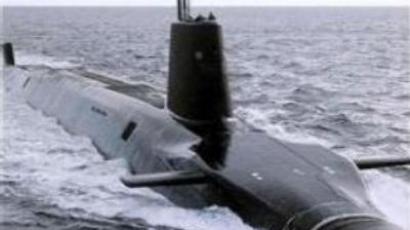UK PM pushes nuclear ‘deterrent’ in face of N. Korea threat
Prime Minister David Cameron has said it would be ‘foolish’ for Britain to renounce its nuclear program in the face of threats from North Korea and Iran. His call to arms comes despite harsh criticism that Trident is too costly and unnecessary.
British Prime Minister Cameron stated that the UK needs an
“ultimate weapon” to combat the growing threat of nuclear
attack which he said had “increased” since the end of the
Cold War.
Writing in UK newspaper the Daily Telegraph, Cameron promoted the
US$150 billion Trident program to overhaul Britain’s nuclear
defenses. In a veiled attack on the Liberal Democrats, who form
part of the UK’s coalition government, he said that it would be
“foolish” to even consider abandoning the Trident program,
citing the “evolving threats” posed by Iran and North
Korea.
“We need our nuclear deterrent as much today as we did when a
previous British Government embarked on it over six decades ago. Of
course, the world has changed dramatically. The Soviet Union no
longer exists. But the nuclear threat has not gone away,” said
Cameron.
Members of the Liberal Democrats and the Labor Party have voiced
opposition to the Trident program, criticizing it as no longer
relevant to the geopolitical interests of the United Kingdom.
The UK government also faced sharp criticism from the Scottish
National Party (SNP) on the issue, calling it an “obscene
waste” of funds at a time of economic austerity. Furthermore,
the SNP stated it would no longer tolerate the presence of Trident
in Clyde.
Cameron, however, argues that there is no other way to protect the
security interests of the UK from the “highly unpredictable and
aggressive regime in North Korea.” He maintained that the
program’s costs are reasonable, making up 1.5 per cent of the
British benefits bill. There are no cheaper suggests to provide a
“credible alternative.”
“Only the retention of our independent deterrent makes clear to any
adversary that the devastating cost of an attack on the UK or its
allies will always be far greater than anything it might hope to
gain,” he says.
RT spoke to regular contributor and journalist Afshin Rattansi,
who re-iterated the criticism put forth by the British parties:
“What we have here is David Cameron maybe ‘going bananas’.
He seems to be saying that we need Trident desperately to protect
ourselves from North Korea. At the same time he visits a city
where, at one point, there was a debate whether the children there
had the same life expectancy as people in Afghanistan. More than
one in four of the children in this country are living in poverty,
and yet this US$150 billion is required to fend off threats from
Iran and North Korea!”
The Trident initiative would overhaul inter-continental missiles
with nuclear payloads based on Vanguard submarines due to go out of
service in 2022. The current plan says the current subs would be
replaced in 2028.
The UK government currently puts the total cost of the overhaul at
$150 billion, which could in turn eat up 35 per cent of the UK’s
military budget in the coming years. Given that the British
government is axing a large portion of its military budget, the
opposition to Trident argues the UK simply cannot afford the
expense.
Last year the UK Ministry of Defense put in orders worth $450
million to design new nuclear-armed submarines.
The final decision on Britain’s Trident nuclear deterrent program
is likely to take place after the next general election in 2015 and
is predicted to be a major bone of contention in parliament.
Analysts have speculated that Labor may propose to scale down the
plans in an effort to pander to the Liberal Democrats and form a
coalition.













